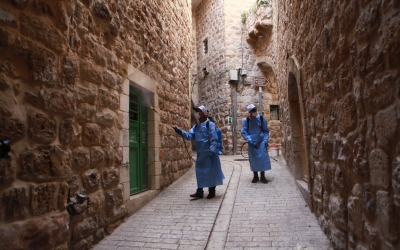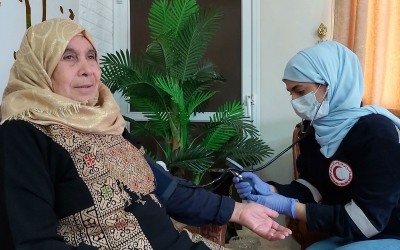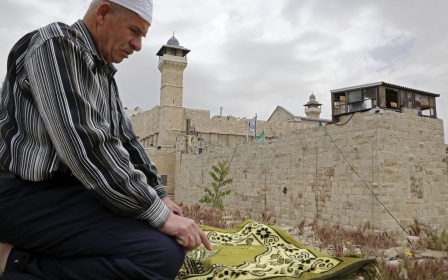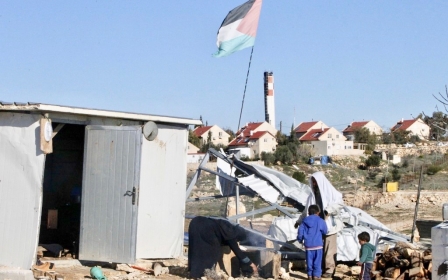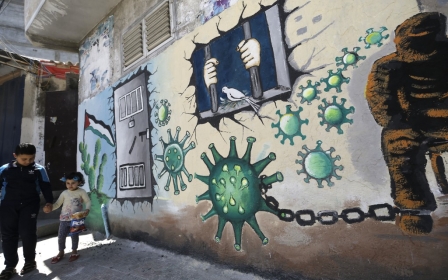Coronavirus: Palestinians stranded abroad turn fury on PA authorities
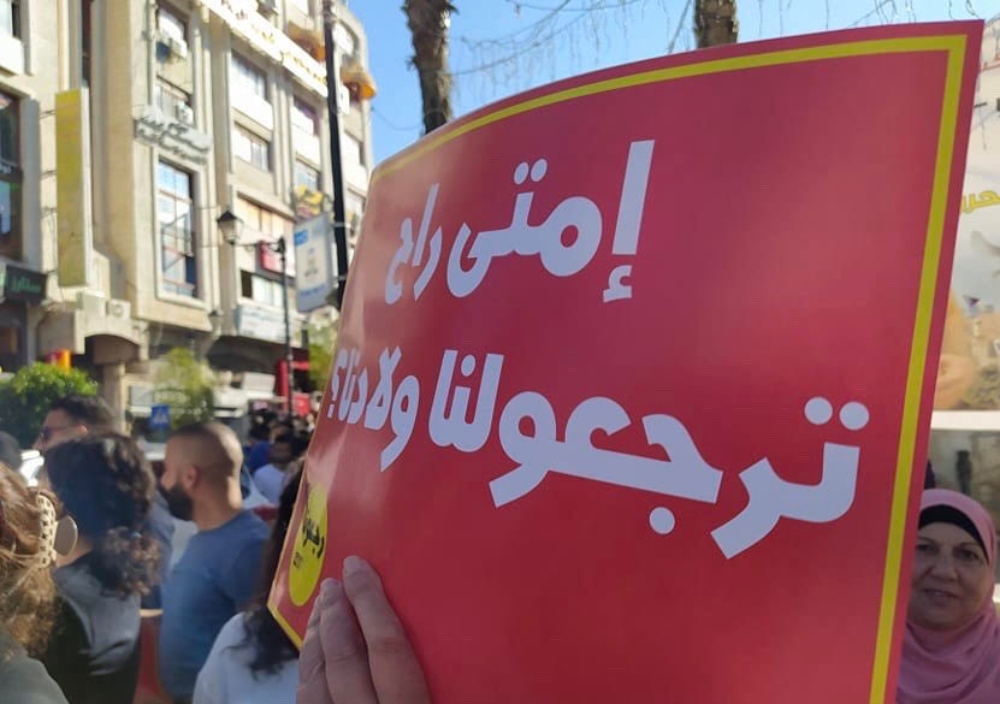
TQ is a mother of four who left Gaza on 5 March to accompany her sick mother to receive treatment in Turkey.
She is one of thousands of Palestinians who have not been able to return home since the coronavirus pandemic halted global travel, leaving them stranded.
This hit Palestinians particularly hard, as their ability to travel was already severely restricted by their political status as refugees, temporary residents, or, for those in the occupied territories, the denial of freedom of movement imposed by Israeli authorities.
'We can’t lie to ourselves anymore. We (Palestinians) don’t even have an airport, Jordan is not responsible for us, and the borders are controlled by the occupation'
- Nadeen Odeh, student stuck in UK
TQ and her mother travelled through the Erez crossing and went on to Jordan, and then flew from Jordan to Turkey. Since she has Jordanian citizenship, Jordanian authorities helped TQ - who requested to only be identified by her initials - return to Jordan in May.
But once she went through the mandatory two-week quarantine in Amman, she found herself trapped inside the country.
“I begged Jordanian authorities to let me leave from the airport directly to the border,” she told MEE. “I told them that I needed a special kind of coordination and yet they ignored me.
“They kept me in quarantine for 17 days and then they took me and Palestinians from the West Bank to the border. They all crossed, but I couldn’t. They said that I couldn’t get the proper coordination permission to cross the Erez crossing."
While the situation for Gazans is especially bad, Palestinians in the occupied West Bank have also suffered.
Palestinians took to the streets in Ramallah on Monday as part of the Bring Us Back Home campaign to protest the inaction of the Palestinian Authority (PA) as many friends and relatives, most of them students, have been stuck abroad for over three months.
The Bring Us Back Home campaign was launched on 12 May by Palestinian students to shed light on their struggle and demand their right to be repatriated.
According to the PA Ministry of Foreign Affairs and Expatriates, around 6,300 Palestinians are stranded around the world.
Minister of Foreign Affairs Riyad Maliki announced on 22 May that Jordan would allow Palestinians to land at the Amman airport on relief flights and that the PA would start to bring them back to their homeland starting on 10 June.
But Zaid Shuaibi, a representative of the Bring Us Back Home campaign currently stranded in South Africa, told Middle East Eye that these promises had yet to be fulfilled.
The PA’s failure to repatriate Palestinians has provoked anger among their families, who demanded their urgent repatriation, as well as Maliki’s resignation.
'Lost hope'
Unlike other nationalities, Palestinians who have been stranded because of the pandemic have the additional hurdle of traveling on different types of documents - as well as having their freedom of movement restricted.
Palestinians who live in the occupied West Bank and the besieged Gaza Strip hold Palestinian Authority passports; Palestinian residents of occupied East Jerusalem hold temporary Jordanian passports; and Palestinian refugees in Lebanon and Syria hold refugee travel documents. But all face the same fate of not being a priority by relevant authorities.
“I have lost hope,” said Nadeen Odeh, a student from the West Bank city of Nablus currently studying genomics in the UK. “We can’t lie to ourselves anymore. We (Palestinians) don’t even have an airport, Jordan is not responsible for us, and the borders are controlled by the (Israeli) occupation, which is another form of oppression.”
Odeh told MEE that her Palestinian friends who are refugees in Lebanon have been getting the worst response. “Both Lebanese and Palestinian authorities are disclaiming responsibility for Palestinians in Lebanon,” she said.
Palestinian residents of Jerusalem possess Israeli residency documents and temporary Jordanian passports. But, explained Diyaa Hasheem, a Jerusalemite studying in Cyprus, “we don’t want to knock on the doors of the occupation for help”.
“I know that the occupation should take responsibility to bring me and my fellow Palestinian students back to Jerusalem, but we want to appeal to the Palestinian Authority,” Hasheem said.
Palestinian residents of Gaza are in an even harder situation.
On one hand, the Rafah border crossing, the only crossing point between Egypt and Gaza, has been closed for two months. Meanwhile, Gazans currently stuck in Jordan fear that they might not be able to return home.
Palestinians seeking to travel to Gaza from Jordan or the West Bank and Jerusalem need a permit from Israel to use the Erez crossing between Israel and Gaza. But since PA President Mahmoud Abbas halted coordination with Israel last month, such permits are now virtually impossible to obtain.
Precarious situations
Many of the stranded Palestinians have been living in difficult conditions. Some are struggling with their visa status in the countries in which they are currently stuck, some have lost their jobs, and many have run out of money.
'I just want to go back home and be with my children. I don’t want anything else from this world'
- TQ, Palestinian stranded in Jordan
Shuaibi, the Bring Us Back Home representative, told MEE that the organisation had created a campaign to support stranded Palestinians in need.
However, they fear that the situation will get worse soon, as the spring semester is coming to an end at most universities.
“Once I’m done with this semester, the landlord will kick me out,” Hasheem, in Cyprus, said. “I’ll have to find another place to stay in until I can travel back to Palestine.”
The PA Ministry of Foreign Affairs and Expatriates announced recently that it would be working to bring back stranded Palestinians, starting with those currently in Egypt, then Turkey and Algeria.
But members of the Bring Us Back Home campaign have lost trust in announcements made by the PA so long as a clear and detailed plan for how to repatriate citizens isn’t unveiled and a timeframe put in place.
“I never thought that this was going to happen when I left my four kids, and my mother died,” TQ said. “I just want to go back home and be with my children. I don’t want anything else from this world.”
Middle East Eye propose une couverture et une analyse indépendantes et incomparables du Moyen-Orient, de l’Afrique du Nord et d’autres régions du monde. Pour en savoir plus sur la reprise de ce contenu et les frais qui s’appliquent, veuillez remplir ce formulaire [en anglais]. Pour en savoir plus sur MEE, cliquez ici [en anglais].


